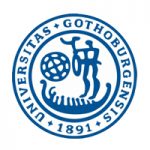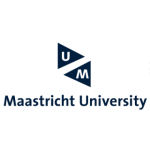项目介绍
The University of Gothenburg tackles society’s challenges with diverse knowledge. 56 000 students and 6 600 employees make the university a large and inspiring place to work and study. Strong research and attractive study programmes attract researchers and students from around the world. With new knowledge and new perspectives, the University contributes to a better future.
Doctoral position in biology
At the Department of Biological and Environmental Sciences (BioEnv) we have teaching and research activities that stretch from the alpine ecosystem, through forests, cultivated land and streams, all the way into the marine environment. In these environments we study different levels of biological organisation from genes, individuals, and populations, to communities and ecosystems. We work within ecology, evolution, physiology, systematics, and combinations of these fields to understand the impact of natural and anthropogenic changes of the environment.
The department is placed at two different localities: in Natrium at Medicinaregatan 7B in Gothenburg and at the Kristineberg marine research station operated by the Marine Infrastructure at the University of Gothenburg. The current employment is based at Natrium.
General information about being a doctoral student at the University of Gothenburg can be found on the university’s doctoral student pages.
We offer
The University of Gothenburg is a state authority, which means special benefits, more holidays and a great pension. You can read more about our employment benefits here.
Project description
The overall aim of the doctoral project is to create a scientific basis for strengthening and preserving the health and welfare of fish in farming environments through in-depth knowledge of fish skin. In this position, you will conduct applied basic research, scientific collaboration, and method development. You will work with research and development in aquaculture-related fish physiology, focusing on understanding the fundamental physiological mechanisms behind barrier function in fish skin. You will study fish species that are important for the development of sustainable Swedish and European aquaculture, such as Atlantic salmon, rainbow trout, and sea bass. The project involves both national and international collaborators.
Duties
The main task is to conduct the PhD thesis work under supervision, which includes development of the PhD student’s methodological experience, analytical skills, as well as theoretical depth and breadth. As the physiological focus is on understanding the underlying molecular mechanisms behind fish skin barrier function, you will work with and develop ex vivo tissue, cellular, molecular, and biochemical analysis techniques, and conduct epithelial barrier function measurements using the Ussing chamber methodology but also using other types of epithelial in vitro techniques, histology, immunohistochemistry and gene expression analysis using QPCR. One part will also include the interaction between pathogens (bacteria/virus/fungus) and the skin barrier.
The studies will be conducted mostly as laboratory studies. Shorter periods may also be spent as field work or in another country. Specific research topics associated with the research project include epithelial barrier function, tight junctions, epithelial transport and wound healing.
Doctoral studies comprises four years of full-time study, and leads to a doctoral degree.
As part of your employment as a doctoral student, you may have departmental duties corresponding to up to 20 % of full-time employment, distributed throughout your study period, and result in a corresponding extension of the studies. Departmental duties usually consist of teaching at first- and second-cycle levels, but may also include research and administration.
Eligibility
Doctoral education requires general eligibility and, where appropriate, specific eligibility as set out in the general syllabus for the subject.
The general eligibility requirements for doctoral studies are:
- having completed a degree at second-cycle level, or
- the fulfilment of course requirements totalling at least 240 credits, of which at least 60 credits must be at second-cycle level, or
- the acquisition of equivalent knowledge in some other way, either in Sweden or abroad.
To meet the specific entry requirements for third-cycle studies, applicants must:
- have a second-cycle (advanced-level) degree in a relevant* subject area in the natural sciences, or
- have completed studies for at least 60 higher education credits at a second-cycle level in relevant subject areas in the natural sciences, or
- have completed a corresponding programme of relevance to the planned third-cycle programme, in Sweden or in another country, or have equivalent qualifications.
*Relevant subject for the planned third-cycle education is physiology/cell biology.
Assessment criteria
The selection of applicants who meet the basic and specific eligibility requirements will be based on the ability to assimilate the doctoral studies.
It is a requirement that the applicant:
- Is a self-driven and responsible person regarding work and education.
- Experience of practical experimental work and an ability to work with both analytical and practical tasks.
- Is able to plan and work independently towards defined goals.
- Is able to work in group and collaborate.
- Practical laboratory experience using physiological, cellular and/or molecular methodologies.
- Experience of aquaculture related research with focus on aquatic animals and is meritorious.
- Excellent communication skills in English, both written and spoken, are necessary since we work in an international environment.
The following documented experience and knowledge are meritorious:
- Basic theoretical knowledge in microbiology and/or practical experience.
- Experience in research related to aquaculture with a focus on fish.
- National and/or international cooperation.
- Ussing-chamber methodology, histology, immunohistochemistry and gene expression analysis with QPCR.
The application should preferably be written in English and must include:
- A short cover letter with the applicant’s justification for the application, i.e., that describes how the applicant meets the selection criteria
- An attested list of qualifications (CV)
- Examination certificates and a transcript of courses with grades
- A copy of the Master thesis (or equivalent)
- Employments certificates and other documents deemed important by the applicant
The top ranked candidates will be selected for an interview, which might be held in English and could also be performed digitally.
Admission and employment
Once you have been admitted to doctoral studies, you will be employed as a doctoral student at the University of Gothenburg.
The provisions for employment as a doctoral student can be found in ordinance SFS 1993:100.
Initial employment as a doctoral student may apply for a maximum of one year, and may be renewed by a maximum of two years at a time.
A doctoral student may be employed as a doctoral student for a maximum of eight years, but the total period of employment may not be longer than the equivalent of full-time education at doctoral level for four years.
Placed at the department of Biological and Environmental Sciences. Extent: 100%. First day of employment: upon agreement.
The University applies a local agreement on salaries for doctoral students.
Please note, doctoral studies at the Department of Biology and Environmental Sciences require physical presence to conduct the studies. If the admitted applicant needs a residence permit for higher education to pursue studies in Sweden, the Department of Biology and Environmental Sciences has the right to revoke the admission decision if the applicant cannot present a valid residence permit no later than at the start of the studies.
Contact information
For further information please contact:
Henrik Sundh, Associate professor
Phone: +46 703 651270
Email: Henrik.sundh@bioenv.gu.se
Darragh Doyle, postdoc
Phone: +46707699141
Email: darragh.doyle@bioenv.gu.se
Åsa Arrhenius, Head of Department
Phone. +46 31 786 26 25
Email: asa.arrhenius@bioenv.gu.se
If you have any questions about the employment process, please contact HR at the Department of Biological and Environmental Science, hr@bioenv.gu.se
Unions
Union representatives at the University of Gothenburg can be found here:
https://www.gu.se/om-universitetet/jobba-hos-oss/hjalp-for-sokande
Application
You can apply to be admitted to doctoral education via the University of Gothenburg’s recruitment portal.
It is your responsibility to ensure that the application is complete as per this notice, and that the University receives it by the final application deadline.
Applications must be received by: February 24th, 2025.
Information for International Applicants
Choosing a career in a foreign country is a big step. Thus, to give you a general idea of what we and Gothenburg have to offer in terms of benefits and life in general for you and your family/spouse/partner please visit:
https://www.gu.se/en/about-the-university/welcome-services
https://www.movetogothenburg.com/
联系方式
电话: +46 31-786 00 00相关项目推荐
KD博士实时收录全球顶尖院校的博士项目,总有一个项目等着你!




